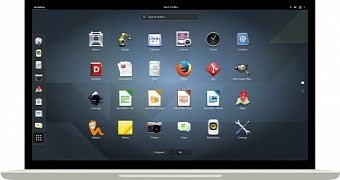System76's kernel engineer Jeremy Soller announced that he's been working on bringing encrypted Home folder support in the GNOME desktop environment for the upcoming Ubuntu 17.10 (Artful Aardvark) operating system.
Last month, the Denver-based computer reseller specializing in the sale of laptops, desktops, and servers pre-loaded with the Ubuntu Linux operating system revealed their plans for preparing a consistent GNOME experience for their computers powered by Ubuntu 17.10 later this year when the OS launches officially.
CEO Carl Richell reported on some of the upcoming changes that the Linux hardware company plans to make in this regard, improving both the look and feel and the under-the-hood functionality of the GNOME desktop environment, which will ship by default with the next major Ubuntu release.
Encrypted Home support in GNOME
While not many were impressed by the new Pop theme that System76 wants to offer by default for their Ubuntu 17.10 system with GNOME desktop, some were thrilled to learn that KDE Connect will become a first class citizen to provide users with seamless notifications from their Android devices.
And now you'll also be surprised to find out that System76 plans on allowing the Home directory on new installs of Ubuntu 17.10 with the GNOME desktop environment to be encrypted during the creation of a new user, a functionality that appears to be implemented in the CreateUser D-bus call.
Jeremy Soller already published his proposed patch for this implementation, which he tested on his Ubuntu GNOME 17.04 (Zesty Zapus) install, reporting that it works as advertised. If you want to try it out, head over to Launchpad and download the patches, and report any issues you might encouter.
There are three patches in total, one of which will add a "Encrypted Home Folder" switch in the GNOME Initial Setup tool. Another patch will add the same switch to GNOME Control Center app. We believe that this fantastic work should also be pushed upstream so that all GNOME users can enjoy it, if approved.

 14 DAY TRIAL //
14 DAY TRIAL //